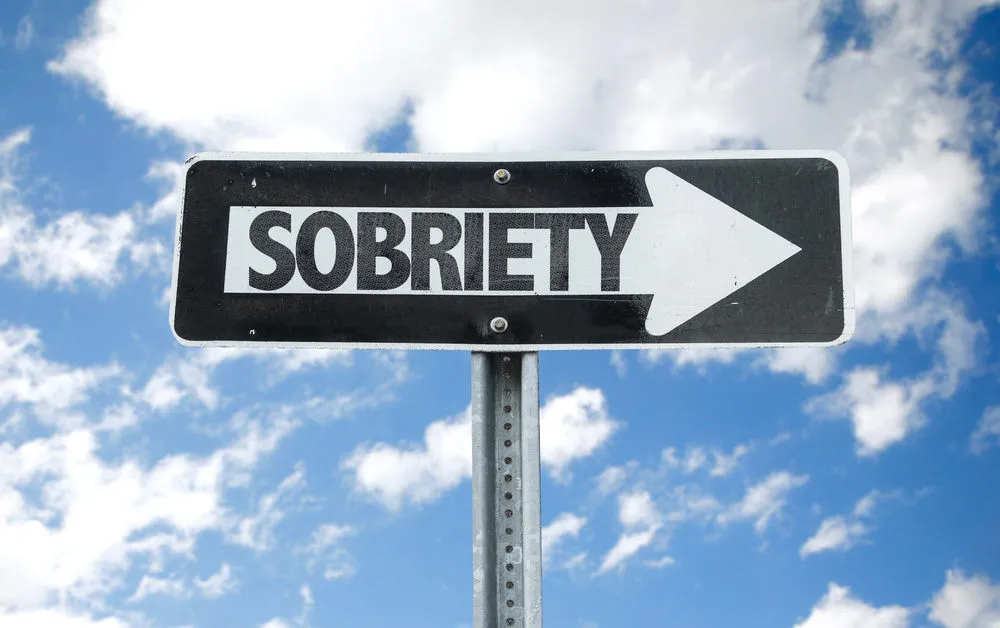It is curial to know the emotions, and conditions to expect during the early stage of recovery, especially in the first six months as this phase can be very intimidating. Maintaining sobriety in the process of recovery can be difficult but with the help of a mental health expert, one can pull through.

What Is Considered Early Sobriety?
The term sobriety is similar to abstinence. The period of early sobriety is the early stage of recovery that entails living a life off the substance abuse or addiction in general, living a life free of alcohol or drugs.
This stage of early sobriety lasts from the first ninety days to the first six months of the recovery journey. Everyone will experience different phases of recovery at different times.
Most times, early sobriety feels like an emotional rollercoaster with different challenges that can arise from it, and this is one major reason the topic of emotional sobriety is a must-attend in the recovery journey, especially in the early phase.
What is emotional sobriety? Emotional sobriety has to do with the various emotions that accompany the recovery journey and how to deal with them.
Some of the emotions in early sobriety are depression, anger, anxiety, guilt, shame, fear of the future, self-hatred, and resentment. These emotions oftentimes arise as a result of the need to face the future and move on from the past.
Emotions And Conditions Associated With Early Sobriety
Some of the emotions and conditions commonly seen in early sobriety are:
Depression
Depression in early sobriety is a common condition during the recovery journey. Early sobriety depression is most times linked to the thought of life after the recovery journey. Most times, finding purpose and clarity after treatment is very difficult and often a tough one for the client.
There are also cases of depression in early sobriety linked to low dopamine and serotonin neurotransmitter level especially when the individual has a background of mental health issues like depression before the recovery journey begins.
Early sobriety and depression most times result in sadness in the patient and this further leads to the manifestation of signs and symptoms such as inability to sleep, feeling of helplessness and hopelessness, reduced activity, and loss of appetite.
Anger
Anger in early sobriety is a powerful emotion that is sometimes inevitable and should be well attended to by a therapist. The majority of the anger in early sobriety is sometimes described as an ironical manifestation of depression in the client and can as well be an indication of damage to the recovery journey if not properly dealt with. The anger sometimes is from patients with previous anger issues.

Anxiety
The recovery journey is usually a big life decision and requires lots of commitment. It results in getting worried and anxious at intervals. If anxiety in early sobriety should worsen, most times it could be a sign of pre-existing anxiety disorder, and this will usually require a mental health expert to manage.
Body changes
Aside from the emotional changes in early sobriety, during the first ninety days, many people often complain of body changes such as weight loss or weight gain, low blood pressure, and stronger immunity. This is often traced to the consumption of better nutrients during this phase of recovery reducing the toxic substances in the body system, especially from drugs, and alcohol.
Loneliness
Loneliness is a common feeling in early sobriety. There is always this feeling of being left alone or being misunderstood by loved ones. Loneliness should be well attended to by a therapist to prevent a trigger from happening.
Factor Responsible For The Emotions In Early Sobriety
Emotions in early sobriety are sometimes normal, at times these emotions are a pointer to a problem, and sometimes they are capable of triggering relapse in the addict. The following are factors capable of triggering early sobriety emotions:
Withdrawal Symptoms
Persistent withdrawal symptoms post addictions results in mixed emotions in such individuals.
Guilt
Guilt from the past is the commonest factor resulting in depression and anger in such people.
Pre-existing Mental Health Conditions
People with underlying mental health conditions before the recovery are more at risk of the depression and anxiety associated with early sobriety.
Loss of Close Relationships
The recovery journey often comes with the loss of close relationships, which results in loneliness and depression in most people.
Other identifies factors are relief post addiction and post pink cloud phase. The pink cloud phase is a honeymoon period in the early part of recovery. It is associated with the feeling of euphoria. The issue with the pink cloud phase is that it is temporary and last for a very short period, tilting the patients to the negative emotions felt in early sobriety.
Below are proven tips to help manage emotions and to stay grounded in the recovery journey:

How To Deal With The Emotions And Conditions Encountered In Early Sobriety
Therapy
Working with a personal therapist regularly will help provide regular guidance on the recovery journey and solutions on how to handle emotions during the early sobriety
Coping Mechanisms
Individuals having emotional problems in early sobriety must learn coping mechanisms to deal with emotions when they arise. For example, breathing in and out when anxious.
Support Group
Listening to and being among people going through the same challenges goes a long way to make one feel better. In the support group, one will listen to the stories of others and how they were able to pull through different stages of the recovery.
Other ways to deal with emotions and conditions in early sobriety include having a personal recovery goal, seeking appropriate medical help, staying hopeful daily, and practicing mindfulness.
Being sober and seeking help is the first step in recovery but going through the phase of early sobriety is another interesting journey on its own. Every recovery journey is very challenging. It does not only come with mental changes, it is also accompanied by physical changes and emotions that may seem like the world is going another way.
What Are The Benefits Of Seeking Help From Mental Health Experts?
The decision to work with a therapist is not an easy task. It requires commitment and trust between the client and the therapist. Below are some advantages of working with a therapist in early sobriety:
Relapse Prevention
One of the advantages of working with a therapist is the relapse prevention plan. The therapist must design the best plan for each client.
Referral
The therapist will help refer the clients to the appropriate place when need be. For example, to support groups, seek medical help, and lots more.
Encourage recovery
Although the patient or client has a major role to play in their recovery journey, the mental health expert helps to motivate and encourage the patient through each stage of the recovery.



